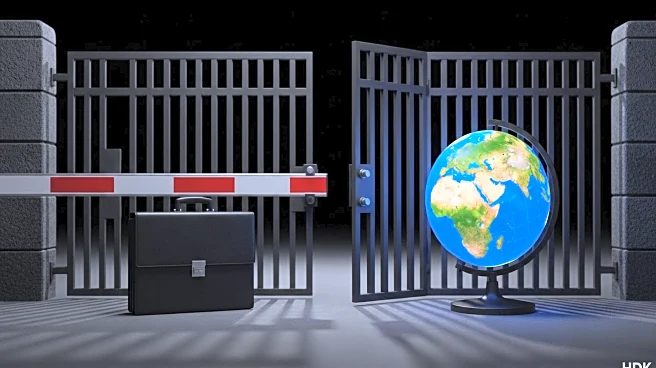What's Happening?
President Trump is facing challenges in his efforts to revitalize American manufacturing through foreign investment due to his strict immigration policies. Recently, a raid at a Hyundai battery plant in Georgia led to the detention of over 300 South Korean workers, causing diplomatic tensions. South Korean President Lee Jae Myung expressed concerns that such actions could deter South Korean companies from investing in the U.S. The Trump administration's use of tariffs aims to encourage foreign companies to manufacture in the U.S., but visa restrictions complicate the recruitment of skilled foreign workers necessary for setting up new plants.
Why It's Important?
The clash between immigration enforcement and foreign investment goals highlights a significant tension in U.S. economic policy. While tariffs are intended to boost domestic manufacturing, the inability to efficiently bring in skilled foreign workers could hinder the establishment of new factories, affecting job creation and economic growth. South Korea's substantial investment plans in the U.S. could be jeopardized, potentially impacting the broader economic relationship between the two countries. This situation underscores the need for a balanced approach that supports both immigration control and economic development.
What's Next?
The U.S. and South Korea are discussing the creation of a new visa category to facilitate the entry of skilled workers, which could ease tensions and support investment. The Trump administration may need to reassess its immigration policies to ensure they do not undermine economic objectives. Stakeholders, including foreign investors and U.S. policymakers, will likely continue negotiations to find a solution that aligns with both immigration and economic priorities.
Beyond the Headlines
The incident raises questions about the ethical implications of immigration raids and their impact on international relations. The performative nature of such raids could damage the U.S.'s reputation as a welcoming destination for foreign investment. Long-term, this could lead to shifts in global investment patterns, with companies seeking more stable environments for their operations.









